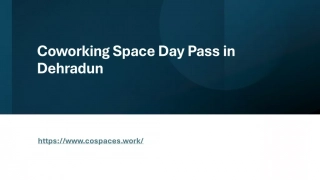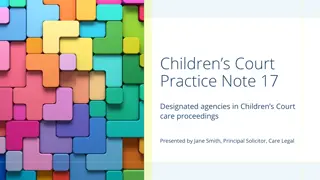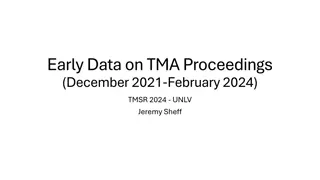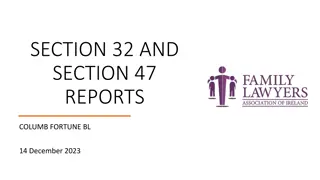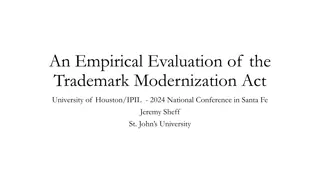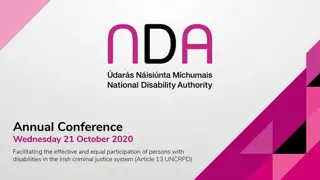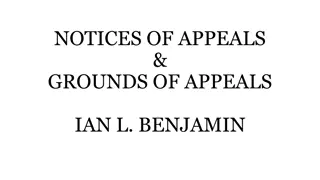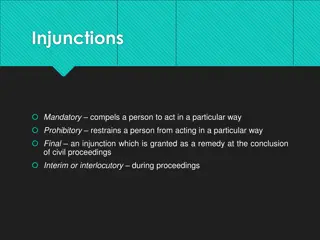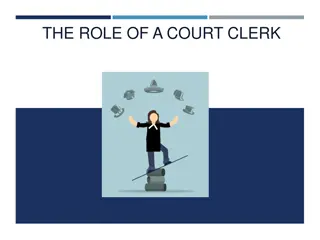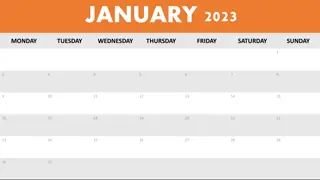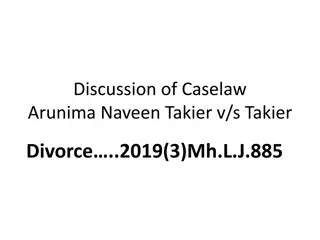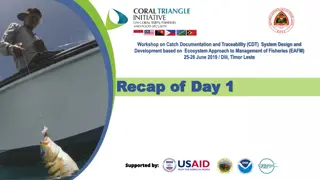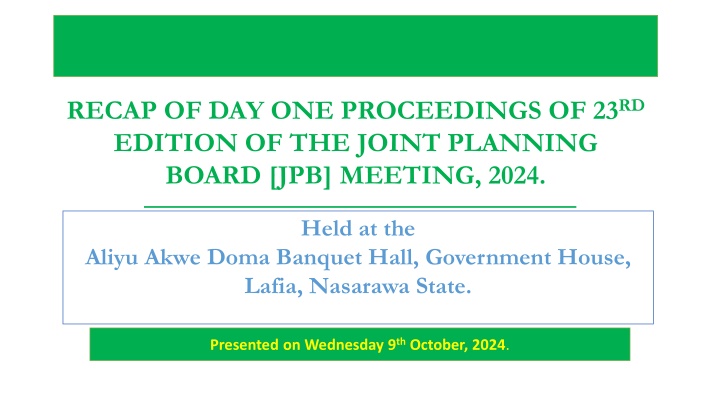
Highlights from 23rd Edition of Joint Planning Board Meeting 2024 in Nasarawa State
"Discover the key takeaways from day one of the 23rd JPB meeting in Nasarawa State, focusing on the Nigerian economy's challenges, options, and opportunities. Featuring important sessions and presentations by government officials, stakeholders, and cultural performances."
Download Presentation

Please find below an Image/Link to download the presentation.
The content on the website is provided AS IS for your information and personal use only. It may not be sold, licensed, or shared on other websites without obtaining consent from the author. If you encounter any issues during the download, it is possible that the publisher has removed the file from their server.
You are allowed to download the files provided on this website for personal or commercial use, subject to the condition that they are used lawfully. All files are the property of their respective owners.
The content on the website is provided AS IS for your information and personal use only. It may not be sold, licensed, or shared on other websites without obtaining consent from the author.
E N D
Presentation Transcript
RECAP OF DAY ONE PROCEEDINGS OF 23RD EDITION OF THE JOINT PLANNING BOARD [JPB] MEETING, 2024. Held at the Aliyu Akwe Doma Banquet Hall, Government House, Lafia, Nasarawa State. Presented on Wednesday 9th October, 2024.
1.0 INTRODUCTION The 23rd Edition of the Joint Planning Board (JPB) meeting organized by the Federal Ministry of Budget and Economic Planning (FMBEP) in collaboration with the Nasarawa State Government commenced on Tuesday, 8th October 2024, at the Aliyu Akwe Doma Banquet Hall Government House, Lafia, Nasarawa State. The high-level meeting with the theme The State of the Nigerian Economy: Challenges, Options, and Opportunities was formally declared opened by the Governor, represented by His Excellency, Dr. Emmanuel Agbadu Akabe, the Deputy Governor of Nasarawa State. The meeting was convened as a hybrid with 456 participants in attendance (441 physically and 15 virtually), drawn from the Federal and State Ministries, Departments and Agencies (MDAs), Private Sector, Civil Societies, Development Partners, NGOs, Academia, and Media. Twenty-nine (29) States and FCT namely Abia, Akwa-Ibom, Bauchi, Benue, Borno, Delta, Ebonyi, Enugu, Ekiti, Gombe, Imo, Jigawa, Kano, Katsina, Kebbi, Kogi, Lagos, Nasarawa, Niger, Ondo, Osun, Oyo, Plateau, Rivers, Sokoto, Taraba, Yobe and Zamfara were in attendance. 2
2.0 OPENING SESSION The JPB meeting commenced at 11:37 am with the recitation of the National Anthem and the Nasarawa State Anthem, followed by opening prayers led by Venerable Jibrailu Yarima, Senior Special Assistant to the Governor on Christian Religious Matters, Nasarawa State and Prince Abubakar Jibrin Engya, Senior Special Assistant on Muslim Religious Affairs, Nasarawa State. Mrs. Munira Abdullahi; Honourable Commissioner, Ministry of Finance, Budget and Economic Planning, Nasarawa State delivered the Welcome Address, while Dr. Emeka Vitalis Obi, mni, the Permanent Secretary, Federal Ministry of Budget and Economic Planning (FMBEP) gave the Opening Remarks. Goodwill Messages were delivered by the Federal Lead, Foreign Commonwealth and Development Office Partnership to Engage, Reform and Learn (FCD0-PERL), Dr. Umaru J. Abu; the Country Director, Global Alliance for Improved Nutrition (GAIN), Dr. Micheal Ojo; Statistician-General of the Federation, Mr. Semiu Adeyemi Adeniran and the Accountant General of Nasarawa State, Mr. Musa Ahmed Muhammed. 3
2.0 OPENING SESSION [CONTD] An Interlude of Traditional dance performance was presented by the Nasarawa State Cultural Troupe. His Excellency, Dr. Emmanuel Agbadu Akabe, the Deputy Governor of Nasarawa State, delivered the keynote address; thereafter declared the meeting open. Dr. (Mrs.) Gloria K. Ahmed, the Director of Special Duties at the Federal Ministry of Budget and Economic Planning, set the Context and Agenda for the meeting. The session was concluded with an overview of Nasarawa State delivered by Miss Fatima Umar Sadiq, a 7-year-old female indigene who elucidated on the historical background and various ethnic groups in the State. This was followed by the recitation of the three stanzas of the National Anthem as the closing prayer. 4
3.0 TECHNICAL SESSIONS The first technical session featured a lead paper on The Nexus between State of the Nigerian Economy and the Implementation of the National Development Plan (NDP: 2021 2025) underthe sub-Theme; Addressing Poverty and Hunger . A total of seven (7) papers were presented, namely: World Bank-assisted Solutions for the Internally Displaced and Host Communities (SOLID) Project; Status Report on the Implementation of Key Resolutions of the 22nd Edition of the JPB & NCDP Meetings; Agri-Food Value Chain: Accelerator for Economic Growth and Development; Rebasing of the GDP in Nigeria: Imperative for State Economy; Micro, Small and Medium Scale Enterprises (MS&Ms) as catalyst for Economic and Development; and Population and Housing Census: Implication for National Planning and Economic Development. 5
4.0 KEY COMMENTS AND OBSERVATIONS The Nexus between State of the Nigerian Economy and the Implementation of the National Development Plan (NDP: 2021 2025) The vast untapped mineral deposits and large areas of virgin land suitable for rice cultivation should be properly harnessed to contribute significantly to feeding the entire nation.; The state appealed to the Federal Government for support in boosting rice cultivation; The Federal Government was urged to assist States, through the Federal Ministry of Finance, in developing the cassava and sugarcane industries to drive economic growth and development; Stakeholders are encouraged to establish a robust monitoring and evaluation system to ensure effective policy implementation and avoid policy somersault; Government at all levels were advised to study and consider adopting successful economic policies from countries like India and Malaysia; and The Government should put in place appropriate fines and/or financial penalties to ensure the effective implementation of its policies. 6
4.0 KEY COMMENTS AND OBSERVATIONS [CONTD] World Bank-assisted Solutions for the Internally Displaced and Host Communities (SOLID) Project All Northern States that have identified displacement as one of the key challenges to their development agenda are eligible to participate in the SOLID Project.; and Identified States were required to submit project proposals and eligibility documents in line with the guidelines from the World Bank and FMBEP. Status Report on the implementation of key Resolutions of the 22nd Edition of the JPB/NCDP Meetings States were encouraged to timely submit their completed templates on the implementation of resolutions reached at every JPB meeting; Some resolutions reached at each JPB apply mainly to the Federal Government and not States, hence, the Federal Government should take responsibility for its ownership; States were encouraged to provide detailed information and data on the status of implementation of resolutions and avoid the phrase ongoing which seems vague and un-measurable; and States have a role to play in creating the enabling environment to checkmate Japa syndrome; hence, the need for collaboration with the Federal Government. 7
4.0 KEY COMMENTS AND OBSERVATIONS [CONTD] Agri-Food Value Chain: Accelerator for Economic Growth and Development The role of women and youth should not be overlooked among opportunities to accelerate agricultural development; The need for extension services to improve access to quality inputs and technical support; and The need to promote climate-resilient inputs as an opportunity to improve agriculture development in the country. Rebasing of the GDP in Nigeria: Imperative for State Economy GDP rebasing should be considered as a very important statistical exercise for a nation, this requires full commitment/cooperation of relevant Departments within the Bureau of Federal & State MDAs, Private Sector, and Donors, etc; and The Rebasing of GDP and the production of States GDP give room for healthy comparison and collaboration among each other, as it enhances States ability to drive-up their revenues and tax- to-GDP ratio. 8
4.0 KEY COMMENTS AND OBSERVATIONS [CONTD] Micro, Small and Medium Scale Enterprises (MS&Ms) as catalysts for Economic and Development The Government should introduce a modernization policy through the enactment of MSMEs Modernization, Promotion Law with the objective of shifting the relationship between large companies and MSMEs from the dominant-subordinate to the interdependent-mutual relationships. MSMEs must embrace digital innovation and transformation to navigate the challenging macroeconomic environment in the country; The need for the Government to intervene in creating an entrepreneurship climate to enable MSMEs to operate in a conducive and competitive environment. Population and Housing Census: Implication for National Planning and Economic Development. The conduct of census in Nigeria was recommended to be real-time than every 10 years that is obtainable; Census data contains inconsistencies and discrepancies; however, there is a need for aggregating data from multiple sources. Nigeria should create a robust and integrated data ecosystem, has better inform policy decisions, economic development, and improved service delivery. 9
5.0 KEY DECISIONS AND RECOMMENDATIONS The Nexus between the State of the Nigerian Economy and the Implementation of the National Development Plan (NDP: 2021 2025) Cassava has been identified as a crop with numerous advantages. Given its strategic importance in developing value chains, the Federal and State Governments should scale up its production and processing to diversify the economy and reduce overreliance on oil and gas. Both the National and Subnational Governments should vigorously pursue the NDP: 2021-2025 for effective implementation. This National Development Plan aims to address Nigeria s economic challenges through economic diversification, investment in infrastructure, security, and good governance. World Bank-assisted Solutions for the Internally Displaced and Host Communities (SOLID) Project States understanding and feedback were critical to the SOLID project's success. Identified States with internal displaced challenges should submit their project proposals and eligibility documentation in accordance with the World Bank and FMBEP guidelines. 10
5.0 KEY DECISIONS AND RECOMMENDATIONS [CONTD] Status Report on the implementation of key Resolutions of the 22nd Edition of the JPB/NCDP Meetings The FMBEP should forward the template on the implementation of JPB resolutions to States not later than two weeks after the JPB/NCDP meetings to ensure timely completion and submission of implementation reports; The FMBEP should convene JPB/NCDP meetings within the first and second quarter of the year to allow mainstreaming of resolutions into the planning and budgeting process of the subsequent year Agri-Food Value Chain: Accelerator for Economic Growth and Development State Governments should foster collaboration through public-private partnerships for Economic Growth and Development. State Governments should enhance market access and value addition through agri- food processing and industrialization. 11
5.0 KEY DECISIONS AND RECOMMENDATIONS [CONTD] Rebasing of the GDP in Nigeria: Imperative for State Economy The National Bureau of Statistics (NBS) should conduct GDP rebasing every five years to accurately reflect changes in the nation s economic activities. Micro, Small and Medium Scale Enterprises (MS&Ms) as catalysts for Economic and Development Both National and Sub-national Governments should embark on transformative reforms to encourage MSMEs advocacy, Financial literacy programmes, and Public-Private partnerships (PPP) on investment in the sector to address its financing gap, State Governments should reform market regulations to facilitate entry and improve the performances of Entrepreneurs; Governments at all levels must encourage and support industrial research and training through local initiatives on Market and marketing research; Federal and State Governments should increase access to credit and capital for entrepreneurs, especially start-up capital. 12
5.0 KEY DECISIONS AND RECOMMENDATIONS [CONTD] Population and Housing Census: Implication for National Planning and Economic Development. The National Population Commission should leverage technology for efficient data management, prioritize population and housing census, ensure stakeholders engagement, data accuracy and reliability, and strengthen institutional capacity for precise and accurate census and data generation. The Commission should strengthen institutional capacity for precise and accurate census data generation as it concern Nigerian citizens. 13
Thank You 14


